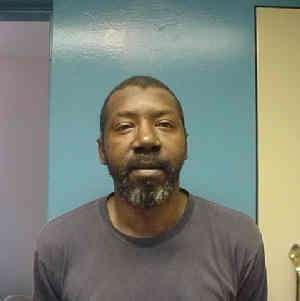Jay Scott was executed by the State of Ohio for the murder of Vinnie Price
According to court documents Jay Scott would rob the V & E Delicatessen in Cleveland. Scott would place his order and when the owner seventy four year old Vinnie Price handed him the food he would fatally shoot her
Jay Scott would be arrested, convicted and sentenced to death
Jay Scott would be executed by lethal injection on June 14 2001
Jay Scott Photos

Jay Scott FAQ
When Was Jay Scott Executed
Jay Scott was executed on June 14 2001
Jay Scott Case
Ohio prison officials quietly have reversed a 1997 policy prohibiting condemned prisoners from speaking their last words. The change might be linked in part to a pending lawsuit by the American Civil Liberties Union.
Final words could be spoken in Ohio sooner than expected as last- ditch appeals are set in motion to try to stop the state’s second execution in 38 years.
Scott, 48, is scheduled to die by lethal injection at 9 p.m. next Tuesday at the Southern Ohio Correctional Facility near Lucasville.
Scott’s attorneys are expected to file an appeal — probably today in Cleveland — citing his history of mental problems and arguing that he is incompetent to be executed. That will be followed by a request to the Ohio Supreme Court to stop the execution.
In the meantime, Gov. Bob Taft is expected to announce his decision on clemency in Scott’s case within a few days. He received the Ohio Parole Board’s 10-1 recommendation against clemency on Friday.
Scott was sentenced to die for the May 6, 1983, slaying of Vinnie Prince, a Cleveland delicatessen owner. Scott shot Prince with a .38-caliber handgun after the 74-year-old woman filled his order for bologna and crackers.
Scott has exhausted his state and federal appeals. His last hopes appear to rest with Taft, who has unlimited authority under Ohio law to grant clemency, and the competency appeal.
Taft spokesman Kevin Kellems said the governor will make a decision “when he’s completed a thorough review of the case. The timeline is driven by the merits of the case.” Joe Andrews, spokesman for the Department of Rehabilitation and Correction, said the execution team is practicing at the Lucasville prison. The last-words policy was changed, Andrews said, at the direction of prisons chief Reginald A. Wilkinson.
The policy was instituted because prison officials were concerned that a condemned killer would use his last words to make painful statements about the victim or victim’s family.
That happened in California in the case of Polly Klaas, a 12-year-old California girl who was abducted and slain. Her killer, Richard Allen Davis, made inflammatory remarks at his sentencing in 1996, claiming the girl’s father molested her.
Andrews said Ohio officials wanted to protect victims from that kind of situation at an execution. However, after talking to representatives in other states and reviewing Ohio’s history of executions, state officials found “nothing to indicate that it was prevalent for inmates to say disparaging things about the victims or their families.”
Andrews said state and ACLU attorneys are discussing the policy change. The ACLU went to federal court in July 1999 to defend inmates’ rights to say last words, an Anglo-American tradition dating back 500 years. The lawsuit was filed on behalf of two Death Row inmates — Fred Treesh of Lake County and Melvin Bonnell of Cuyahoga County.
Wilford Berry, the Cleveland killer known as the “the Volunteer,” was given the opportunity to write his last words before his execution Feb. 19, 1999. He declined, and went to his death silently.
Not everyone thinks the revised policy is a good idea. Ohio Public Defender David Bodiker, who spends much of his time trying to prevent inmates from being executed, said yesterday that it doesn’t matter how the final words are communicated. “It really serves no purpose to anyone,” Bodiker said. State Treasurer Joseph T. Deters, former Hamilton County prosecutor and a zealous death-penalty advocate, called the last-words policy “state-sponsored victim harassment.” “I think it’s a mistake,” Deters said. “They ought to revisit it. The victims shouldn’t have to suffer any more.”









